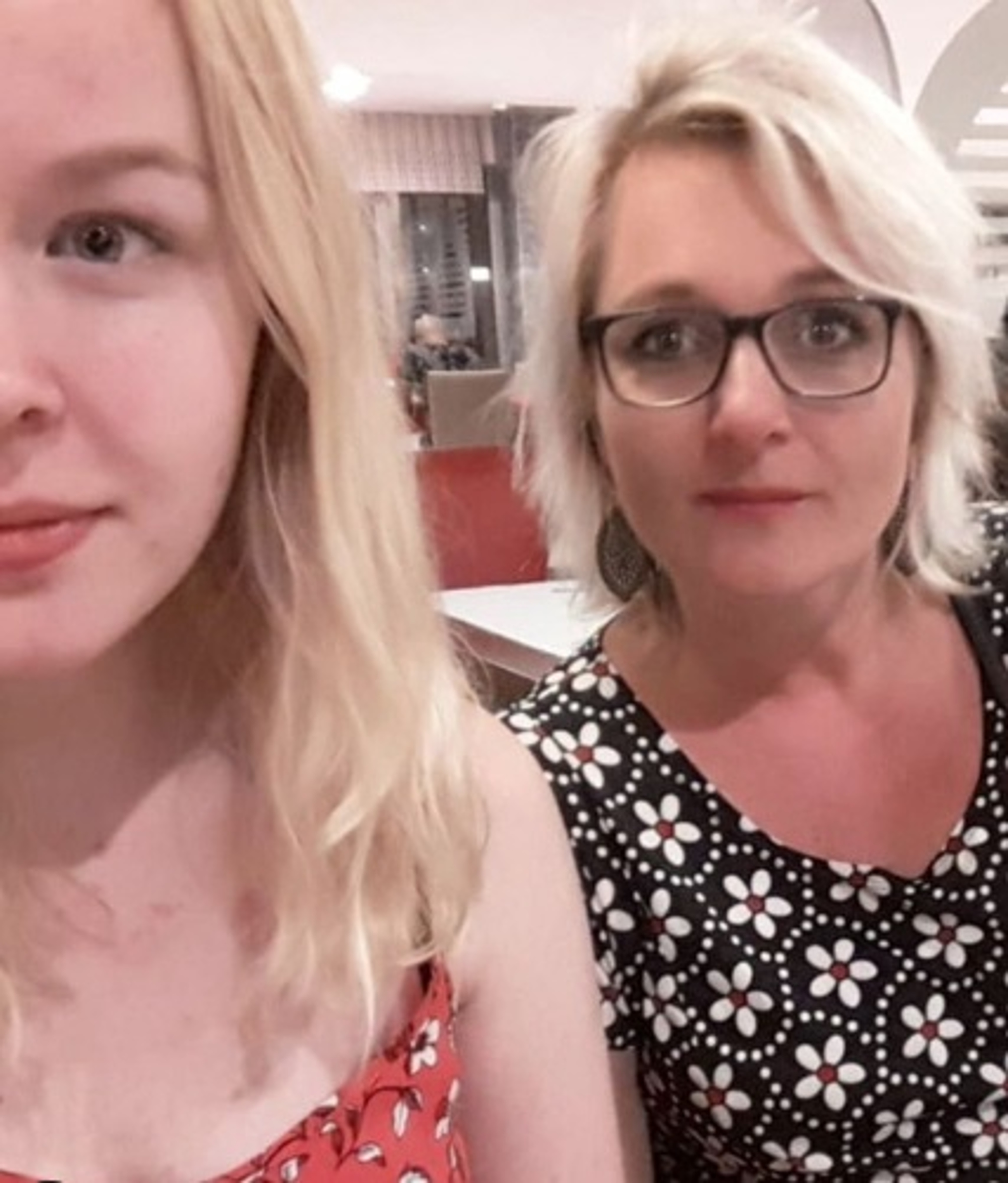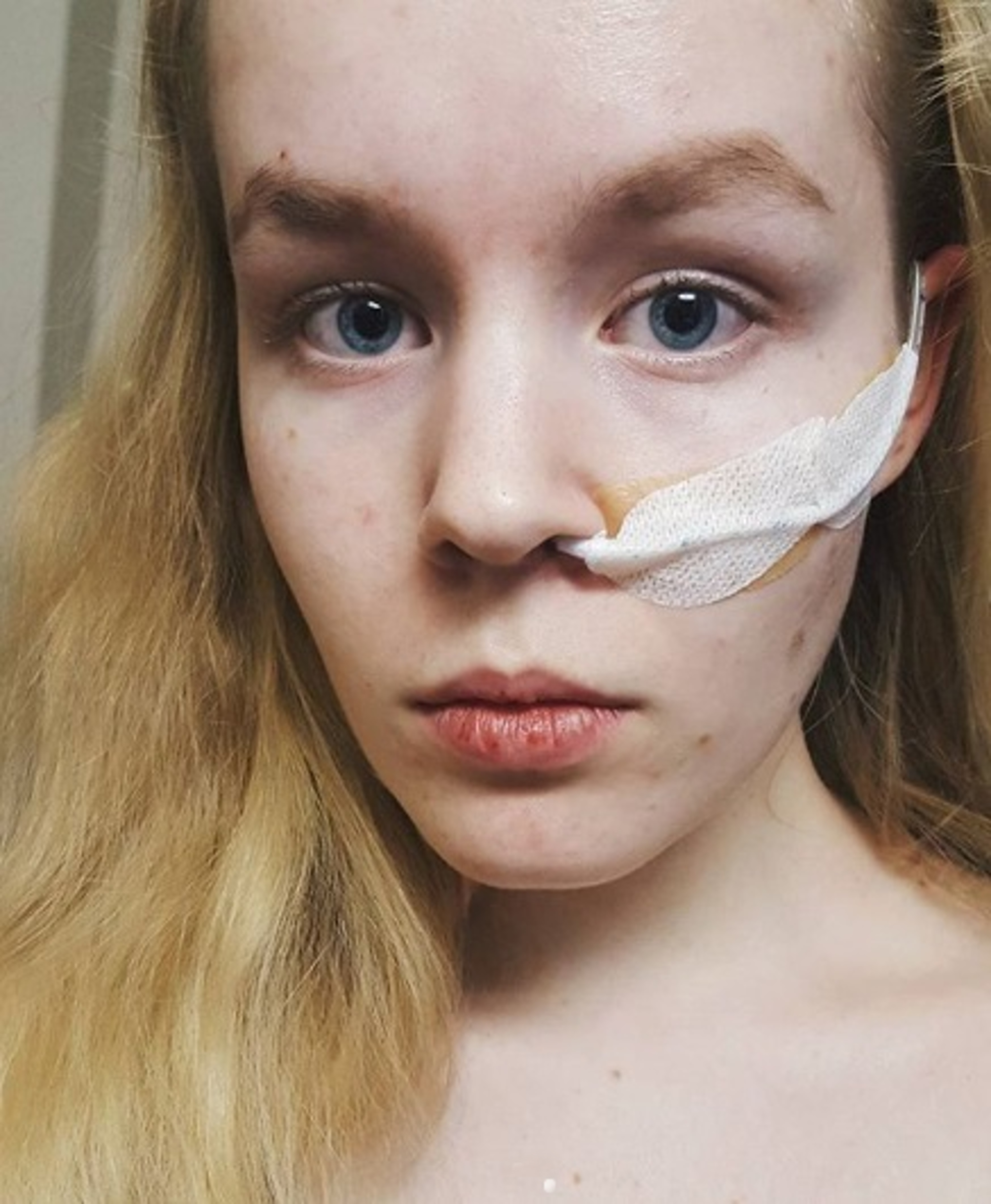(starts)
The method used by the Dutch teenage rape victim to end her life after she felt she could no longer go on living is detailed in a Dutch guide on killing yourself that says it is in a legal grey zone best described as "self euthanasia".
Noa Pothoven, 17, died last Sunday after she publicly announced her intention to die, saying life had become unbearable and she could no longer carry on. She spent her last days on what was described as a "hospital bed, placed in the living room".
When news of her death was revealed there was intense speculation as to how she died. But more recently the Life Ending Clinic (Levenseindekliniek) in The Hague, which Noa had contacted last year when she was 16 to get doctoral approval for euthanasia, released a statement on behalf of her friends. It said: "To stop her suffering, she stopped eating and drinking.” The friends added that they did not regard this as euthanasia.
Under Dutch law legal euthanasia in which a doctor administers a substance capable of ending life is possible for children aged between 12 and 16 only with parental and medical consent. From the age of 17, it is only necessary that doctors provide their approval.
Last year Noa had been devastated at being turned down because she was not old enough, saying: "They think I'm too young to die. They believe that I should first finish treatment to cope with my trauma, and that my brain should first become fully grown. They said that will take until I am 21. I am heartbroken by this news, because I cannot wait that long."
However, a year later when she was 17, circumstances had changed.
She said: "I deliberated for quite a while whether or not I should share this, but decided to do it anyway. Maybe this comes as a surprise to some, given my posts about hospitalisation, but my plan has been there for a long time and its not just some whim.
“I will get straight to the point: Within a maximum of 10 days I will die. After years of battling and fighting, I am drained. I have quit eating and drinking for a while now, and after many discussions and evaluations, it was decided to let me go because my suffering is unbearable.”
When the police were contacted by Central European News (CEN) on Tuesday they confirmed that there was no report of a suspicious death, despite the fact that she had announced her upcoming death, and implying that it had been carefully planned somehow in order to make sure it was legally carried out, and there were no problems for her relatives.
On Tuesday, CEN reached out to Noa's psychiatrist Roland Verdouw from the Pluryn mental health centre who wrote the foreword of Noa's autobiography called 'Winning or Learning' about her battles with mental illness. Verdouw was not allowed to say if the clinic had given Noa any advice that might have helped her with her planned death. Pluryn spokeswoman Marian Draaisma also could not answer any questions due to patient confidentiality,
And spokeswoman Elke Swart of the Life Ending Clinic in The Hague, who Noa is known to have spoken to last year, also refused to comment.
But it may not have been one of the clinics that she consulted. A search online indicates that there is a booming online presence advising people how to kill themselves legally, and describing it as "self euthanasia".
In the Netherlands, euthanasia advocacy groups and self-euthanasia support groups such as the 'De Einder Foundation' are active in handing out advice to people who still want to end their life outside of the mainstream legal euthanasia trajectory. The Foundation actively advises its clients how to get “a humane death under your own control”.
And Dutch psychiatrist Boudewijn Chabot penned two books called “Guide to Dignified Dying” and “Taking Control of your Death by Stopping Eating and Drinking” which discusses in detail “how to make stopping eating and drinking a humane exit”.
The books are essential reading for advocates of "self euthanasia" and people who wish to die.
De Einder recommends taking certain medicine combinations and inhaling helium or nitrogen, but it also talks about starving yourself to death for self-euthanasia, a practice which it describes as a "grey area" under Dutch law.
In one of the documents CEN found readily available online and being shared in "self euthanasia" communities, De Einder writes: “We call the ending of life through the last three methods mentioned 'self-euthanasia' because the factual execution happens without the help of the person designated by law and there is at the moment not (yet) a legal government guideline for.”
As preparations for self-euthanasia by starvation, the foundation recommends people prepare by talking to doctors and making sure they have a written medical advance directive in which they specifically note down their wishes including “banning life-extending treatment, fluid administration and hospitalisation”.
It also recommends those with a wish to starve themselves to get a special “mattress to lay down comfortably and to prevent bedsores”, exactly as Noa did in having a special hospital bed in her living room.
Further steps detailed by the organisation are to consult with a doctor who can “advise daily on soothing medication for stressful symptoms such as anxiety, restlessness and breathing problems”.
It also advises on how to avoid issues for those left behind, and significantly points out that of the three alternatives to end life, only one, the one used by Noa, could be used without potential problems for her family. It reads: “Self-euthanasia by refusing to eat or drink is classed as a natural death. Self-euthanasia when using medicines or helium are considered an unnatural death.”
On Tuesday, when CEN contacted the police about the death which she had announced herself in advance and which therefore in the UK would be certainly regarded as an unnatural death, police confirmed they were not investigating any suspicious deaths, indicating the method chosen by Noa was the same as the one recommended in the book.
If it had been the use of helium or the medicine, a forensic pathologist would need to have been involved. They would need to inform the police and the public prosecutor's office and the relatives of the deceased would have been questioned as to whether they were actively involved in the "self-euthanasia" process. If they had been actively involved, this would have been illegal.
The death of Noa caused a worldwide media sensation, with even Pope Francis commenting, saying that “euthanasia and assisted suicide are a defeat for all”.
Similar voices were echoed in Dutch politics, where active debates have been going on in recent years in which proponents vouched to extend the right to euthanasia, while opponents argued for more restrictions.
One of the debated proposals would see all over-75s the right to assisted suicide when they feel they have had “a fulfilled life” and nothing much more to live for, even in the case when they are in healthy shape.
According to the political parties led by the left-liberal D66 Party, a few conditions would have to be met first. There has to be a "sustainable, well-considered and intrinsic" wish to die.
A specially trained "life-ending consultant" would give their verdict about the person's wish to die, which has to be seconded by another consultant or checking committee.
The life-ending consultant would have at least two interviews with the OAP, with at least two months between, to make sure the person knows what they are deciding and that they are not being pressured by their environment. The life-ending consultant could be a doctor, a nurse, a psychologist or a psychotherapist.
Pro-life and conservative parties in parliament are actively fighting against what they consider to be a “culture of death”.
Spokesman Cornel van Beek of the Christian-conservative Reformed Political Party (SGP) called upon the government to do more to prevent suicide and self-euthanasia.
Van Beek said his party has actively fought in the Dutch Parliament against organisations such as De Einder handing out advice to people how to end your life.
He said that his party also stood up against a Dutch end-of-life advocacy group group called 'Laatste Wil' ("Last Will") when it started distributing a deadly substance to its members in 2017 so they could end their lives on their own terms if they wished to do so.
While the substance was initially meant for the elderly who have lived a “fulfilled life” with nothing more to live for, the organisation even opened its doors for younger people to acquire the substance in the form of a powder which people need to mix with water and drink in order to die.
Van Beek said: “People get a wrong signal from this. Instead of people being aided psychologically or searching help in different ways, they can now just choose this option for a way out.”
Van Beek said that many people have psychological problems and that especially among youngsters this can cause problems in their life, but added that it does not mean “that in the future they cannot have a positive life outlook”. He added that there are many examples of people having successfully overcome mental problems.
He added: “We find it very worrisome that some organisations are sending signals to society where they detail how you can end your life.
“Death is never a medical solution. We should always search for other ways out.”
(T4 / ends)




Byline Journalist: koen.berghuis@cenagency.com
Byline Sub editor: Joseph Golder
Byline Spotter: koen.berghuis@cenagency.com
Byline Commisioning Editor: koen.berghuis@cenagency.com
Byline Senior Writer: Michael Leidig
Byline Copychecker: koen.berghuis@cenagency.com
Byline Illustrator: koen.berghuis@cenagency.com
Byline News Editor: Michael Leidig
Geography: Arnhem
Subject: Health, Illness
T4 Editor Story Rating: 9
T4 Editor Pic/Vid rating: 8
T4 Total rating: 8.5